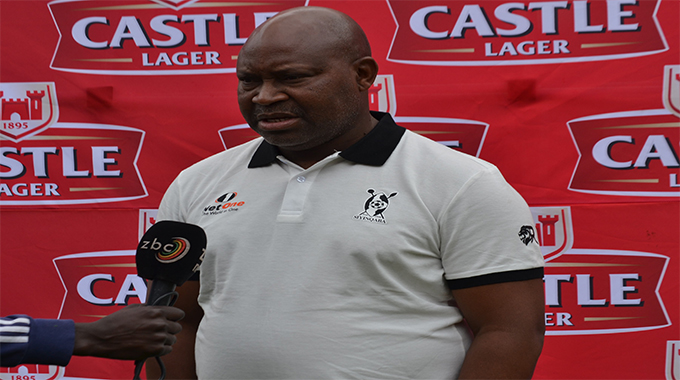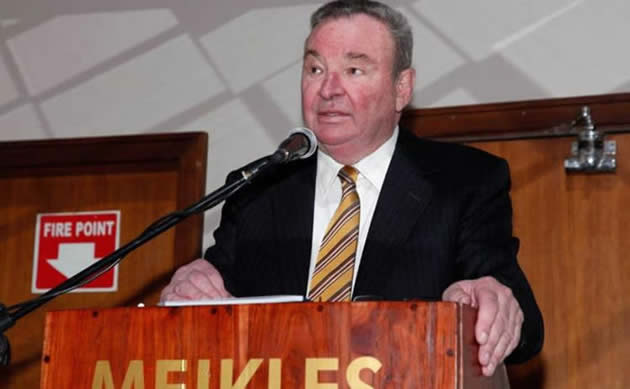Sadc leaders should speak with one voice on climate change

Michael Magoronga
THE climate change Conference of Parties (COP)26 ended with a watered-down coal resolution following a proposal by developed countries to end the use of coal in order to reduce greenhouse gas emissions. World leaders agreed to reduce emissions and limit temperature rises to 1.5 degrees Celsius as well as to rapidly phase out the use coal as it was rendered the dirtiest fossil fuel.
They also committed to halting deforestation by 2030.
But it is the ban on the use of coal which was a bone of contention with African and other vulnerable nations challenging the decision.
This is largely because in 2009, rich countries agreed that poor countries would receive at least US$100bn (£75bn) a year from 2020, from public and private sources, to help them cut emissions and cope with the impacts of the climate crisis. But by 2019 only US$80bn had got to Africa.
Developing countries have expressed disappointment, as reflected at the talks and have been promised that increases will follow in the next five years to bring the finance for the next five years to $500bn. Crucially, they also want more of the cash to be spent on adaptation, rather than emissions cuts. The coal issue did not help matters.
According to the Coal Treat, developing countries would be assisted with a ‘fossil fuels transition fund’ raised by taxes on fossil fuel imports and sales.
Governments would support coal-dependent communities with Green New Deal-style policies to stimulate sustainable new industries and livelihoods, as has been successfully achieved in Germany.
Whilst African countries were quiet as United Kingdom cabinet minister and COP26 climate change talks President Alok Sharma banged the gavel to signal the adoption of the Glasgow Climate Pact, it only took India and China to challenge the unabated use of coal from “phaseout” to “phase down”.
But Africans are the worst affected as they are heavily reliant on the use of coal. With over 120 world leaders in attendance, Sub Saharan Africa, which is heavily reliant on coal, was heavily represented with statements from Angola, Eswatini, Kenya, Lesotho, Liberia, Libya, Madagascar, Malawi, Mozambique, Namibia, Tanzania, Zambia, and Zimbabwe.
African leaders made their voice heard as they demanded wealthy countries to make good on their pledge to deliver $100 billion a year in climate finance to developing countries – a commitment made at the UN climate talks in 2009.
A report recently announced they would not be able to meet this target until 2023. Between 2016 and 2018, only 25 percent of the money promised to developing nations went to Africa.
This is despite the fact that the continent is responsible for just 3 percent of global emissions, yet it remains the most vulnerable region to global warming. And according to the report, climate change could further lower gross domestic product by up to 3 percent by 2050.
Whilst other continents like Europe and the Americas can afford to adopt new strategies as they seek to reduce emissions, it is difficult for Africa whose economies are still agrarian to adapt to climate change.
Cutting down trees for building, farming, burning tobacco and firewood purposes, is one good example of what Africa presently cannot do without.
Africa lacks the financial muscle to change the way of doing things and adapt new ways which are “smart” and forgoing the use of fossil fuel. Sub Saharan Africa’s leaders should therefore make a case of the continent’s plight in the face of climate change.
A rise in extreme weather events is damaging economies reliant on agriculture and natural resources. Climate change is exacerbating already high levels of poverty, while the economic shock of Covid-19 has further weakened capacity to manage climate threats.
As a result, African leaders should unite and stand their ground in the face of the immediate or abrupt ban of coal. As a case study, South Africa is highly reliant on coal for its energy production. In 2020, 86 percent of South Africa’s electricity came from coal, compared to the global average of 34 percent.
It is significantly ahead of the next highest G20 member, India, which generates 71 percent of its electricity from coal.
The partnership aims to accelerate the decarbonisation of South Africa’s economy, focusing specifically on the electricity system.
It is expected to prevent up to 1-1.5 gigatons of emissions over the next 20 years and support South Africa to move away from coal and accelerate its transition to a low emission, climate-resilient economy.
South Africa’s President Cyril Ramaphosa said: “We look forward to a long-term partnership that can serve as an appropriate model of support for climate action from developed to developing countries, recognising the importance of a just transition to a low carbon, climate-resilient society that promotes employment and livelihoods.”
South Africa however clinched a $8.5bn deal to help end its reliance on coal in a partnership deal announced at the COP26 climate summit.
The partnership involves the governments of South Africa, France, Germany, the UK, the US, and the European Union. South Africa employs more than 90 000 people in coal mines alone in 2020 and had pledged to cut emissions by 2030 in an updated contribution to global efforts.
The new partnership recognises that delivering on its ambitions will affect mining communities and workers. It stresses the need to lead a “just transition”, which supports affected workers and vulnerable communities, especially coal miners, women and youth, as the South African economy changes.
Subsequently, it will work to identify financing options for innovative technical developments and investments, including electric vehicles and green hydrogen, to help create quality, green jobs Whilst South Africa can be regarded as developing country, regional leaders should speak with one voice especially that countries like Zimbabwe cannot clinch such deals because of sanctions.
Touching down from Glasgow, President Mnangagwa said the call to ban coal was impossible as long as sanctions were still in place.
Climate change has increased the frequency of severe droughts and cyclone-induced floods and with economic sanctions, Zimbabweans’ lives have been adversely affected and development stunted, President Mnangagwa told the United Nations Climate Change Conference at the Scottish Events Centre in Glasgow.
He said the removal of sanctions on Zimbabwe would help the country achieve its commitments to fighting climate change adding that the country was open for investment in green industries.
While Zimbabwe suffers from global warming driven by emission of greenhouse gasses, the country is a net sink that is absorbing more carbon than it releases.
President Mnangagwa said climate change challenges have led to an increasing frequency of severe droughts and cyclone-induced floods.
“This, coupled with the economic sanctions imposed on us and the Covid-19 pandemic, have had negative impacts on the people of my country.
Notwithstanding that as a country we are ‘a net sink’; I am pleased to highlight that Zimbabwe has revised its Nationally Determined Contributions and committed to a conditional 40 percent per capita greenhouse gas emissions reduction target, by 2030.
Comprehensive strategies are also being implemented towards mainstreaming climate change adaptation and resilience across all sectors of our economy.
“The removal of the illegal sanctions imposed on my country will undoubtedly enhance the timely achievement of our commitments,” he said.
President Mnangagwa reiterated that Zimbabwe was open for business, adding that the Government was ready to welcome and facilitate investments from across the world towards greening the economy and achieving sustainable development that leaves no one behind.
Zimbabwe has also set up an Inter-Ministerial taskforce to spearhead the COP26 resolutions but without funding, the taskforce will not be able to do much.
The regional block should stand with countries like Zimbabwe who are affected by sanctions so that the country is not left out of development projects. @michaelmagoron1









Comments